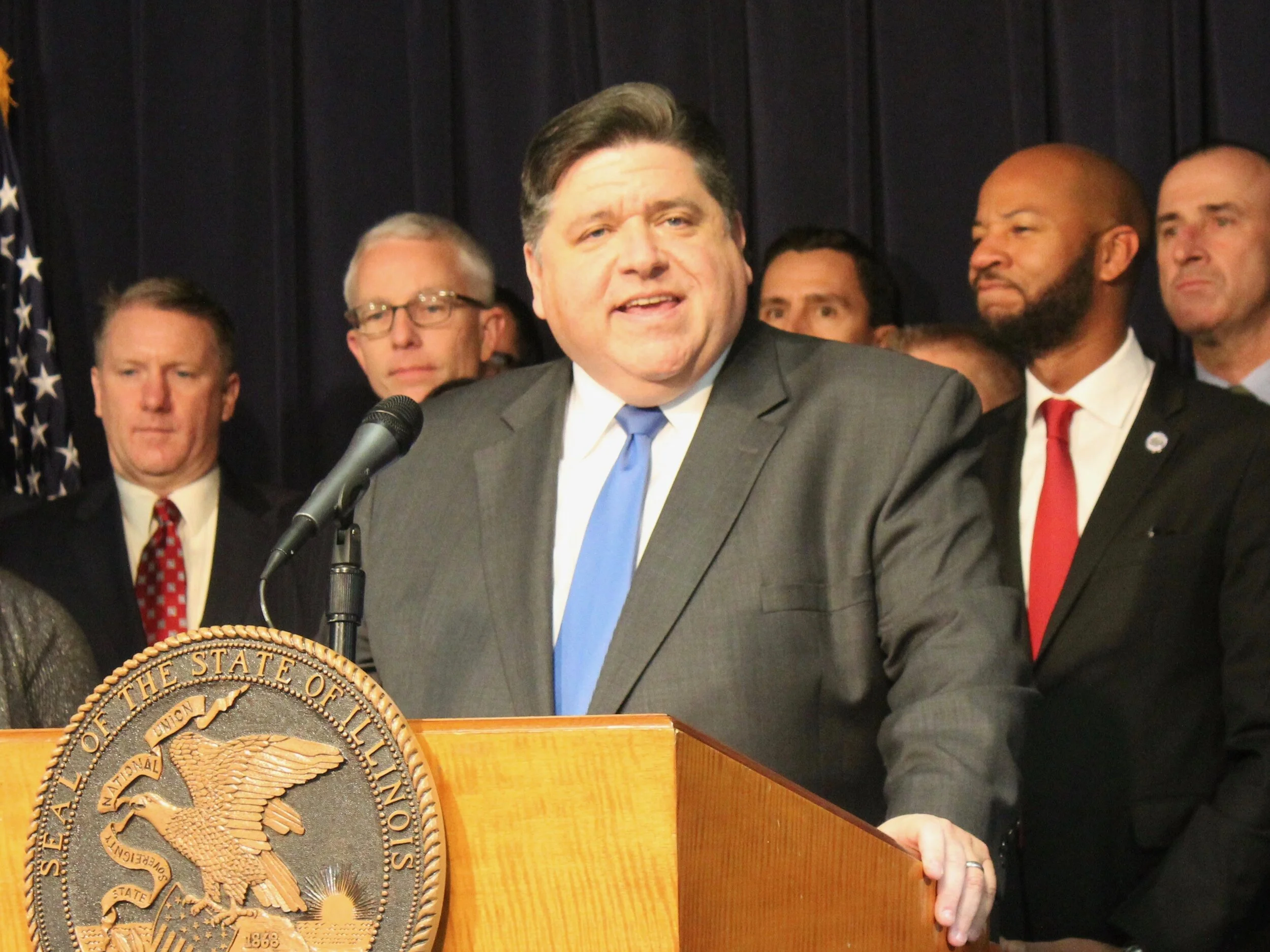J.B. volunteers Illinois to go first in prez race
After Iowa debacle, guv tweets, ‘It’s time for the most representative state in the country to be the first in the nation’
Gov. Pritzker suggests Illinois should go first in the national primary campaign to select presidential candidates. (One Illinois/Ted Cox)
By Ted Cox
After Iowa’s meltdown Monday night in processing results from its Democratic caucuses, Gov. J.B. Pritzker volunteered Illinois to lead the way from now on in the U.S. presidential campaign.
As of late morning Tuesday, the Iowa Democratic Party had yet to release any election results from Monday’s caucuses — the first step in the long national primary process to select presidential candidates for the two major political parties ahead of the general election in November.
On the Republican side, President Trump won near-unanimous approval from Iowa voters Monday in his bid for reelection. Former Illinois Congressman Joe Walsh picked up just 1.2 percent of the vote in his insurgent challenge to the president, and was booed by caucus attendees. He posted on Twitter: “I said decency and honesty matter, and the (Make America Great Again) crowd booed me. I said Donald Trump only cares about Donald Trump, and the crowd booed me.”
But the epic failure of the Iowa Democratic Party to produce any results from the caucuses led Pritzker to suggest that Illinois would make a better starting line for the presidential race. “If you’re looking for a state whose people represent the diversity of America, look no further than Illinois,” Pritzker tweeted midway through Monday evening while waiting for results. “It’s time for the most representative state in the country to be the first in the nation.”
Pritzker cited a 2016 National Public Radio story from the last election cycle that asked the question, “If Iowa, N.H. are too white to go first, then who?” Amid criticism that Iowa and New Hampshire are not demographically reflective of the national electorate, NPR determined that Illinois was the most representative of the 50 United States.
Illinois came out of top thanks to its racial demographics, including substantial minorities of both African Americans and Hispanics. According to the NPR data, Illinois was only 3.9 percent different from the national racial makeup. No other state was even within 10 percent of the national averages.
Illinois was slightly better educated than the national average, with 32 percent of the population holding college degrees, compared to 29 percent nationally, and it was slightly better off, with a median household income of $57,000, compared to the national median of $53,000. But its median age of 37.5 was almost exactly the national median of 37.7, and its share of the electorate who consider religion “very important” was split down the middle at 50 percent, only slightly below the national average of 53 percent.
So it’s not so far-fetched to imagine Illinois leading the way in the presidential campaign, especially after even longtime Des Moines Register political writer David Yepsen, former head of the Paul Simon Public Policy Institute at Southern Illinois University Carbondale, granted that the voting-results snafu “has put a nail in the coffin of an Iowa tradition,” in the words of Politico Illinois’s Shia Kapos, one of the first to report on Pritzker’s invitation to make Illinois first.
Yepsen told Kapos’s Politico colleague Natasha Korecki: “This fiasco means the end of the caucuses as a significant American political event. I expect Iowans will move themselves to kill it off by holding a primary.”
Several TV pundits also railed against the Iowa meltdown Monday night and openly suggested it was time to change the schedule, led by MSNBC’s Chris Matthews.
MSNBC producer Kyle Griffin quoted U.S. Sen. Dick Durbin Tuesday as saying: “I think the Democratic caucus in Iowa is a quirky, quaint tradition which should come to an end. As we try to make voting easier for people across America, the Iowa caucus is the most painful situation we currently face for voting.”
On CNN, former Obama adviser and Chicago Tribune political writer David Axelrod chimed in, saying: “I think the Iowa caucuses are dead, dead, dead. I don't think that's even a discussion anymore. I think that the nail has been driven through the Iowa caucuses.”
The Iowa Caucuses began in 1972, in a bid to open up the election process after the chaotic Democratic National Convention in Chicago four years earlier. They proved instrumental to the campaigns of Presidents Jimmy Carter in 1976 and Barack Obama in 2008, but they were often criticized as not being representative of the overall U.S. electorate, and they’ve previously been plagued with problems, as in 2012 when it took weeks to accurately determine that former U.S. Sen. Rick Santorum of Pennsylvania had actually defeated Mitt Romney after Romney was mistakenly declared the original winner. Romney went on to claim the Republican nomination but lost to Obama’s reelection.
Still, some Illinoisans warned to be careful what you wish for, pointing out that the state would be overrun by presidential campaigns and their TV ads for a year ahead of the primary, as Iowa currently is. Rich Miller posted the Politico Illinois item on his Capitol Fax blog, and while some commentators welcomed making the state the leadoff primary in the presidential campaign, others warned it would be too early for down-ballot state races, while others insisted the state was too blue Democratic to serve Republican interests.
As it stands, the 2020 Illinois primary is set for St. Patrick’s Day, Tuesday March 17.

